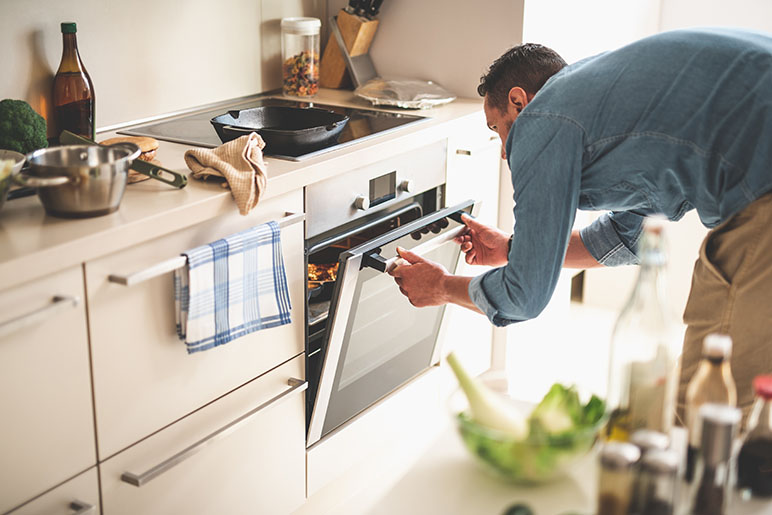
A home fire is a catastrophic event that can upend your life and leave you picking up the pieces. There are several hot zones when it comes to fire risk in your home. Some items to pay close attention to include your kitchen appliances, electrical work and wiring, and heating equipment.
Following some fire safety best practices will improve your odds of avoiding a fire in your home. And while you can do everything in your power to prevent a house fire, it’s still important to have the right homeowners insurance coverage to protect you from the unexpected.
How to reduce the risk of kitchen fires
As you might expect, the leading source of fires in U.S. homes is the kitchen. According to the National Fire Protection Association (NFPA), ranges and cooktops account for 53% of home cooking fire incidents, and unattended equipment is a factor in 29% of cooking-related fires. The organization provides several fire prevention tips to consider while cooking in the kitchen.
If you are frying, grilling, boiling or broiling something, stay in the kitchen until the process is complete.
Keep a lid close by in case you experience a small grease fire. If you do experience a small grease fire, cover the pan with the lid, turn off the burner and keep the pan covered until it is completely cool.
How to reduce the risk of electrical fires in your home
According to the Electrical Safety Foundation International (ESFI), outdated wiring, faulty appliances and circuit overloads pose major fire risks in homes. According to ESFI, in the U.S., there are more than 50,000 electrical fires each year that cause an estimated $1.3 billion in property damage. There are some simple things you can do to reduce the risk of electrical fires in your home.
How to reduce the risk of heating equipment fires in your home
In the winter, improper use of heating equipment can result in a fire. In fact, according to the U.S. Fire Administration (USFA), heating fires are the second leading cause of home fires in the U.S. While the number of heating fires per year is in decline, there were still more than 30,000 of them in 2021. Keep track of the following tips to reduce the risk of heating fires.
Keep all flammable materials three feet from fireplaces, wood stoves, radiators, space heaters or candles.
In addition to preparing for these specific home fire hazards, it’s also a good idea to have a general fire safety plan. The American Red Cross provides detailed fire safety plans for homes occupied by children, older adults, people with disabilities and pets.
Some at-home best practices for fire safety include:
Understanding the common causes of house fires will help reduce the chances of your investment and belongings going up in smoke. However, it is impossible to completely eliminate the risk of home fires. So, make sure you have the proper coverage for your home. If you are unsure about your coverage or want to learn more about protecting your home, connect with your Indiana Farm Bureau Insurance agent today.
Inside Story is for educational and informational purposes only. Inside Story is compiled from various sources, which may or may not be affiliated with our family of companies, and may include the assistance of artificial intelligence. While we strive to provide accurate and reliable content, we make no warranties or guarantees about its completeness, accuracy, or reliability, and are not responsible for the content of any third-party sources or websites referenced herein. The inclusion of any content does not establish a business relationship or constitute our endorsement, approval, or recommendation of any third party. Testimonials and examples provided are for illustrative purposes only and do not guarantee future or similar results or outcomes, and may not consider individual circumstances, goals, needs, or objectives. Inside Story does not provide legal, tax, or accounting advice. For individual guidance, please consult a qualified professional in the appropriate field.
Coverages subject to policy terms, conditions, and exclusions. Subject to underwriting review and approval.